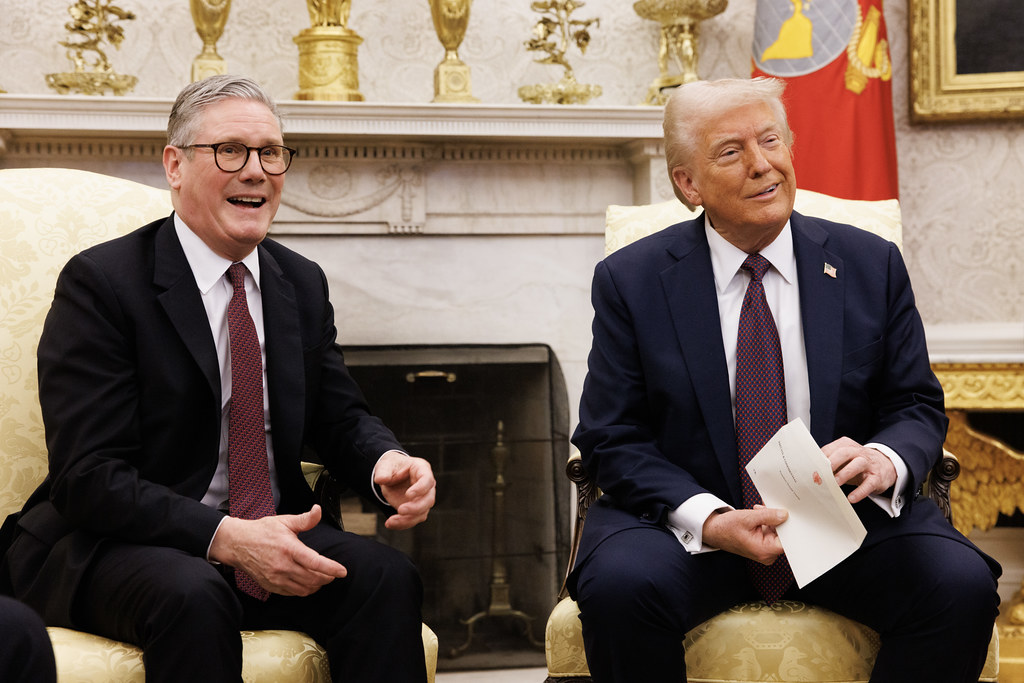
The UK government has announced it has secured £150 billion worth of U.S. investment, which it hopes will create 7,600 jobs. The announcement came as U.S. President Donald Trump and Prime Minister Sir Keir Starmer signed an agreement dubbed the “Tech Prosperity Deal,” which sees major firms like Microsoft and Google pledging billions of pounds to the UK. The deal is part of a wider plan by the UK to deepen its economic ties with the U.S. However, some industries, such as steel, have been dealt a blow as a proposed deal to cut tariffs was shelved. Additionally, several big drug companies, including AstraZeneca, have halted investment plans, claiming the UK is an “increasingly challenging” country in which to do business.
Investment Pledges from Major Firms
The vast majority of the £150 billion investment—£90 billion—will come from Blackstone over the next decade. The U.S. private equity firm announced in June that it would spend £370 billion across Europe over 10 years, and it is still to be determined how most of the UK portion will be spent. The “Tech Prosperity Deal” itself will see the UK and U.S. collaborate in areas including artificial intelligence, quantum computing, and nuclear power. Microsoft has pledged to spend £22 billion in the UK over the next four years, while Google is set to invest £5 billion over the next two years to expand an existing data center in Hertfordshire.
Prime Minister Starmer said the investments are “a testament to Britain’s economic strength and a bold signal that our country is open, ambitious, and ready to lead.” The government also highlighted investments from other firms, including Palantir’s plan to invest up to £1.5 billion in UK defense innovation, Prologis’s £3.9 billion in life sciences and advanced manufacturing, and an announcement from Boeing to convert two aircraft in Birmingham for the U.S. Air Force.
A Mixed Economic Picture
While it is hoped that these investments will generate thousands of jobs, the news comes at a time when domestic businesses appear to be slowing investment due to higher running costs. According to the Office for National Statistics, the number of people on UK payrolls has fallen by an estimated 127,000 in the year to August, and vacancies were down by 119,000 during the same period. Many firms have cited increasing costs, such as higher National Insurance and minimum wage payments, as reasons for their slowdown.
In recent days, pharmaceutical companies have highlighted other challenges. U.S. giant Merck abandoned a plan to invest £1 billion and is moving research to the U.S., blaming successive UK governments for undervaluing innovative medicines. AstraZeneca then paused its planned £200 million expansion of its Cambridge research site. Meanwhile, UK-based firms are also investing in the U.S., with GSK pledging to spend nearly £22 billion on R&D and manufacturing in the U.S. over five years.
What The Author Thinks
This influx of foreign investment, while presented as a major economic victory, paints a complex picture for the UK. While the headlines are positive, the underlying trend of domestic businesses slowing investment and UK-based pharmaceutical firms shifting to the U.S. suggests a reliance on foreign capital to mask fundamental economic vulnerabilities. The deal may be a necessary step for the UK to boost its economy, but it also reinforces a narrative of economic dependency rather than self-sufficiency. This raises questions about Britain’s long-term economic strategy and whether a reliance on external partners can truly build a resilient and competitive domestic industry.
Featured image credit: Number 10 via Flickr
For more stories like it, click the +Follow button at the top of this page to follow us.
